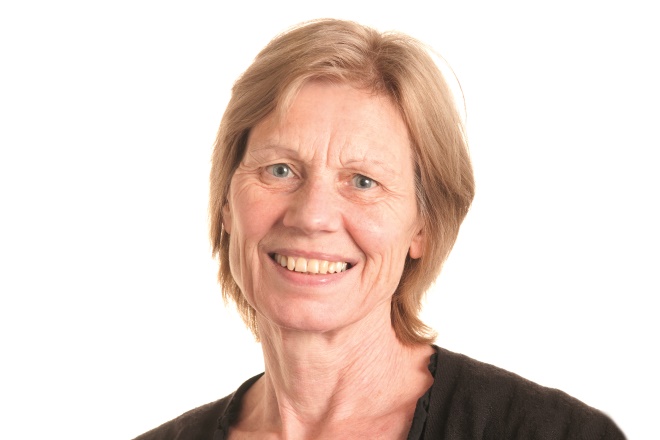
Shutterstock.com
Research suggests that sending smokers personalised information about their health risks could increase the uptake of and adherence to smoking cessation services.
In a randomised controlled trial, smokers were assigned to receive either a personalised letter that also invited them to a stop smoking taster session, or a standard letter advertising their local NHS Stop Smoking Service. The researchers discovered that those who received a personalised letter were twice as likely to attend and complete the NHS Stop Smoking Service course than those who received a standard invitation letter.
Reporting in The Lancet
[1]
(online, 24 January 2017), lead author Hazel Gilbert from University College London, says: “Smokers underestimate their own personal risk of illness compared with that of other smokers, and [a personalised] letter has the potential to alert smokers to their own risk.”

Source: Courtesy of Hazel Gilbert
Hazel Gilbert, lead author: “Smokers underestimate their own risk of illness compared with that of other smokers….a letter has the potential to alert [them] to their own risk.”
The study involved 18 NHS Stop Smoking Services in England and a total of 4,384 patients recruited from 99 general practices. Overall, 1,748 participants in the control group were sent a standard letter from the GP practice, advertising the local Stop Smoking Service and asking them to make an appointment with an advisor.
In the intervention group, 2,636 participants received the personalised letter from their GP which contained specific information about their level of risk taken from a screening questionnaire and their medical records. The personalised letter also outlined how their risk of certain diseases could fall if they quit smoking.
Participants in the intervention group also received a personalised invitation to a no-commitment taster session to find out more about their local NHS Stop Smoking Service. They also received a follow-up personalised letter if they did not attend within three months.
The researchers found that 17.4% of people in the intervention group attended the first session of a six-week Stop Smoking Service course within six months of receiving their invitation, compared with 9.0% in the control group. People in the intervention group were also more likely to complete the course, with 14.5% doing so compared with 7.0% in the control group.
The team says the results show that the combination of the personalised letter and the taster session could help overcome barriers to treatment and give people greater opportunity to access local services. “The letter containing personal risk information aimed to motivate smokers to make a quit attempt by persuading them that the risks are personally relevant. This can trigger action, but it is important to combine it with an offer of help,” says Gilbert.
“Offering a no-commitment introductory session was a way smokers could experience and feel comfortable with the quitting services before signing up to a course.”
According to the researchers, their study is the first to explore this intervention but other recently published research has also supported the efficacy of proactive recruitment methods for improving smoker engagement with cessation services.
However, because their intervention contained two parts, the team notes that it is not possible to say what the relative contributions of the personalised information and the taster session were. They also say that implementation studies are needed to work out how it could be used in practice and its efficacy in real-world settings. They point out that overall recruitment to the study was low, at only 4.1% of more than 100,000 smokers invited to participate.
NHS Stop Smoking Services provide support from stop smoking advisors as well as providing access to treatments such as nicotine replacement therapy. Previous research has shown that they can result in quit rates reaching 35%, but they only reach around 5% of smokers.

Source: Alistair McGillivary
Andrew Radley, consultant in public health pharmacy at NHS Tayside, Scotland: “Pharmacists have an outstanding opportunity to improve the health of people attending their pharmacies through proactive recruitment of smokers.”
Andrew Radley, consultant in public health pharmacy at NHS Tayside, says that the majority of the Stop Smoking Services in Scotland are provided through community pharmacies, but uptake has dropped recently, possibly owing to the increased use of e-cigarettes. He says that pharmacists have a key role to play in helping people access cessation services.
“Pharmacies are situated in most of our communities and build long-lasting relationships with the people who live there,” he says. “Pharmacists have an outstanding opportunity to improve the health of the people attending their pharmacies through proactive recruitment of smokers. Smokers attending pharmacies to receive prescriptions for a range of long-term conditions may come into contact with the pharmacy team on a much more regular basis than with any other health professional.”
References
[1] Gilbert H, Sutton S, Morris R et al. Effectiveness of personalised risk information and taster sessions to increase the uptake of smoking cessation services (Start2quit): a randomised controlled trial. The Lancet 2017. doi: 10.1016/S0140-6736(16)32379-0
You may also be interested in

Smoking cessation medicine cytisine to be available in January 2024, distributor confirms

Scottish government considers nicotine addiction treatment for children aged under 12 years
